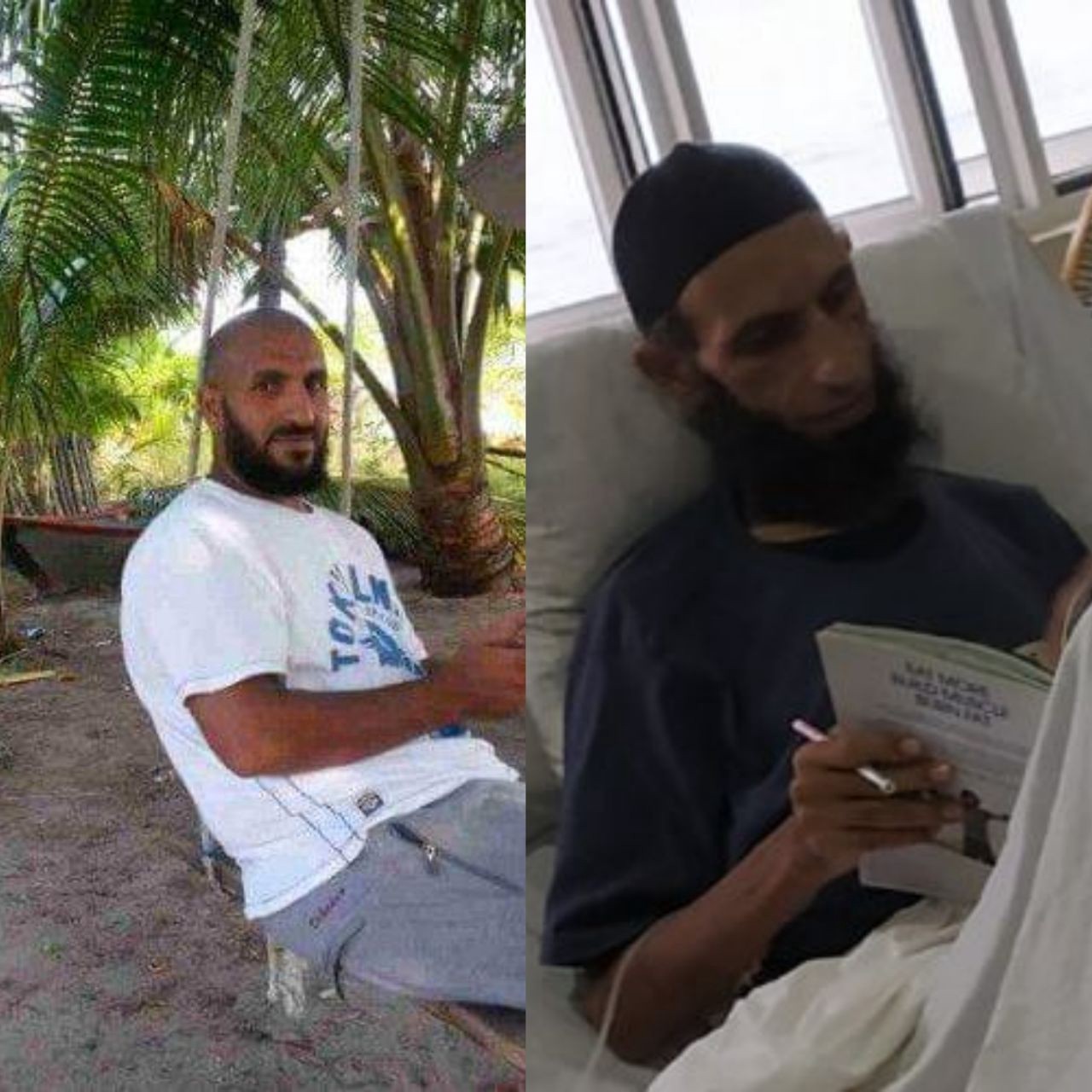Male’, Maldives – Yemeni national, Yasir Yehya Saleh has died in custody, while detained without trial or charge, in the Maldives.
The former Arabic teacher of Ahmediyya School who was living in the country with his Maldivian wife and child, was arrested citing links to terrorism based on intelligence received by Maldives Police Service. Based on this intelligence, on 2nd March 2017, his residence visa was cancelled by Maldives Immigration and was detained the following day, declaring him a threat to national security.
According to a statement released by Maldives Immigration on 2nd August 2020, prior to his detainment, he was summoned to the Immigration on 1st of February, 2020 where he was given a period of one month to leave the country, which he refused to comply with. Immigration also claims that following his failure to depart, he was then informed to leave the country three more times, all of which he denied to follow.
Immigration also claims that upon the cancelling of Saleh’s visa, he was detained in a facility in Hulhumale’ where foreigners who fail to comply with immigration rules and regulations are kept.
The statement of Immigration, which was written in Dhivehi also referred to the arrival of Saleh into the country, which was in 2014, shortly after which, he got married to a Maldivian citizen, in the same year. It also revealed that Maldives Police Service had been monitoring the movements of Saleh closely, following the information received that he has ties with terrorist organizations.
Maldivian authorities have linked him to famous terrorist organizations including Al-Qaeda, where he plays a leadership role and has completed multiple levels of terrorist trainings. The statement also claimed that he had strong relationships with locals who have been investigated for having terrorism links, apart from his role in organizing and overseeing terrorist activities run by Al-Qaeda on an international level.
Claims against Saleh continued to pile on in the statement as Immigration also claims that he has been arrested in his home country as well as in other countries as well with false documents, on terrorism charges.
However, no such reports have been made public by the Maldivian government. In fact, no reasoning has been published which may support the claims of the government, nor were any of the allegations against him announced in detail prior to his death, except for a blanket accusation of terrorism against his name.
Saleh’s health started deteriorating following hunger strikes where he went weeks without eating the food provided at the detention center, which saw his healthy looking body shrivel up into mere skin and bones over the years. According to the statement by Immigration, Saleh was treated several times at IGMH hospital due to his deteriorating health caused by the hunger strikes.
Immigration also claims that Human Rights Commission of the Maldives was made aware of Saleh and information regarding his case was shared with the Commission on several occasions. It was also said that during the time Saleh was placed in the custody of Maldives Correctional Services, it was ensured that his human rights were ensured including allowing visitation of his family, and provision of special food to him, after all security measures were put in place.
During this time, information regarding Saleh was provided to the authorities in Yemen, a war ridden country, revealed Maldives Immigration. As per the statement, Immigration requested the Yemeni government for assistance in arranging the travel documents to send off Saleh back to his country “involuntarily”, following Saleh’s refusal to cooperate in obtaining travel document for him to travel to Yemen on his own will.
Despite all this, the government of Maldives refused to recognize and keep up with the international laws of human rights and basic dignity any human deserves, which is the right to a lawyer, a right to a trial and knowing exactly why one is being held captive, in the case of Saleh.
Saleh was never officially charged, nor was he put on trial, begging the question, what kept the the human rights champions and organizations from ensuring that basic needs were met? Why was Human Rights Commission mum? What stopped Amnesty International and the Human Rights Watch from releasing statements and ensuring Saleh was officially charged and put on trial?
Was it because he was labeled a terrorist? Was it because of his ethnicity? Was it because he was from Yemen, a war torn country, from which a terrorist could likely be from? Was it his religion? What ever we may be, why was the world not angry? Why is the world STILL not angry? He could have been a criminal, but he could have also very well been innocent. The world will never know.
Saleh died on 3rd August, 2020 at 16:25 at Indira Gandhi Memorial Hospital while being treated on a ventilator, following a stroke he suffered as a result of the continuous hunger strike he went on. A wife lost her husband. A child lost their father. A man lost his life. All because human rights were not ensured, and that is the bottom line.





